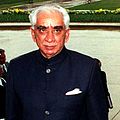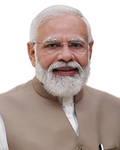| Leader of the Bharatiya Janata Party in the Parliament of India | |
|---|---|
| भारतीय जनता पार्टी के सदन में नेता | |
 Emblem of India | |
| Residence | New Delhi |
| Appointer | Parliamentary Board of the Bharatiya Janata Party |
| Term length | 6 years (Rajya Sabha) 5 years (Lok Sabha) |
| Formation | 1989 |
| First holder | Chandupatla Janga Reddy (Lok Sabha) Jaswant Singh (Rajya Sabha) |
| Website | Parliamentary website |
| Part of a series on the |
| Bharatiya Janata Party |
|---|
 |
The Leader of the Bharatiya Janata Party in Parliament is the parliamentary chairperson and representative of the National Executive of the Bharatiya Janata in the Parliament of India.












